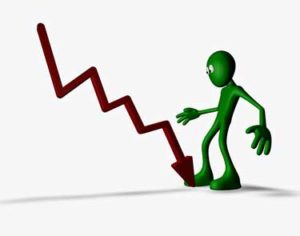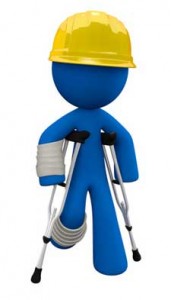

Could a small lab in the Central Valley of California shake the CFS research field with a quake of epic proportions? Change how the disease is viewed? How its defined? Legitimize the disease once and for all? Its possible that given enough resources that the Workwell Foundation in Ripon, California may do all of these.

Workwell (formerly the Pacific Fatigue lab) has been making a difference in ME/CFS for over a decade
Run by three exercise physiologists, Dr. Christopher. Snell (Ph.D), Dr. MarkVan Ness (Ph.D) and Staci Stevens (M.A.), a former grad student and now a researcher with chronic fatigue syndrome (ME/CFS), the lab focuses on a very basic and still very misunderstood aspect of CFS why patients have so much trouble with exercise.
Staci Stevens, the founding Executive Director explained: many researchers look at ME/CFS patients when they’re at rest – at baseline. But as any ME/CFS patient knows, the real problems occur when their systems are put under physical stress. Workwell examines the energy production in people with ME/CFS as they undertake the most stressful activity of all – exercise.
Since oxygen plays a key role in energy production, exercise physiologists use oxygen consumption during exercise to tell how much energy a persons body is capable of producing. Having people pedal a stationary bicycle until they can pedal no more tells them how much air their lungs can take in (Ventilation Max) and therefore how much oxygen they’re using to produce energy (VO2 Max) at their peak level of effort.
Given the fatigue and post-exertional problems often noted in ME/CFS one would think aerobic exercise tests would have played a key role in legitimizing this disease, but instead they’ve given rise to further skepticism. The ability of many patients to pass them has added to confusion about a disease characterized by the word fatigue. How could people with ME/CFS patients be so fatigued if they’re able to generate normal amounts of energy?
A New Approach
The researchers at Workwell realized, however, that while researchers may have been asking the right questions they were asking them in the wrong way. Many ME/CFS patients can, after all, get through a single workout or a single day at work only to crash afterwords. No one’s taken a close look at the ME/CFS patients ability to produce energy when they’re in a crash – an odd oversight in a disease whose symptoms are so tied to activity. (Indeed, study after study is showing that many variables which test out normal or near normal when ME/CFS patients are at rest are abnormal when their systems are put under stress).
Workwell’s new exercise testing regime ((the Stevens Protocol) – two exercise tests two days in a row – is giving the post-exertional problems ME/CFS patients have reported for so many years a chance to show up – and they are.
Their results are both profound and disturbing. About half of the ME/CFS patients fail or significantly under perform in the first single exercise test. It’s the rest of the group that are so intriguing, though. Give these patients a second exercise test a day later and many of them will fail as well–and fail spectacularly.
The amount of impairment Workwell sees can be astonishing – some patients suffer as much as a 50% drop in their ability to produce energy the next day. Ms. Stevens spoke of a twenty-something man whose next day exercise tests were worse that those of a normal 85 year old. In a hospital setting his cardiopulmonary exercise profile would suggest he had heart failure.
Revolutionary Findings
Medical science says this shouldn’t occur. For decades researchers have shown that human beings, under virtually all conditions and in a variety of disease states, can take an exercise test to exhaustion, recover and return the next day and score the same the next day. It’s remarkable that people with heart failure or end-stage kidney disease or other serious diseases can, again and again, summon up the same enormous amount of energy again and again. Our bodies are evolutionarily adapted to summon up energy upon demand at any time – even in severe illnesses. That’s been the medical mantra for many decades.
But not more. It’s not just that people with chronic fatigue syndrome (ME/CFS) are failing these tests, its the unique way they’re failing them that’s raising eyebrows. Decades of research have shown if you a take a female of W age and have her do X amount of exercise at Y heart rate she will exhibit Z levels of oxygen consumption – and then be able to do it again the next day.
Researchers have believed these algorithms are set in stone but they’re not holding up in ME/CFS. That they’re not suggests that something has gone awry in the basic physiological processes the body uses to produce energy in this disease.
Even after 20 years in the field Staci Stevens excitement was palpable. The implications of her findings are profound not just for ME/CFS patients but for the field of exercise physiology. She said “We are charting waters that have never been charted before. Its an exciting time to be involved in CFS research”
The labs findings are so unusual that their peers sometimes cant believe what they’re hearing. After decades of research indicated there’s no need to do repeat exercise tests, they’re simply not done anymore. Stevens, an exercise physiologist with ME/CFS, brought them back. Her personal experience suggested to her that something in her ability to exercise had gone awry. Since her own two-day exercise test demonstrated a profound drop in her ability to generate energy had occurred, she’s duplicated that result many times with ME/CFS patients.
I asked Stevens how her colleagues across the country were reacting to this data? Were they excited to find this anomaly? Not surprisingly, dogma has often prevailed. Many think Workwell must have made a mistake – that their machines are wrong or that they have imputed the data incorrectly but others have been enthralled. One colleague on the east coast – who is now doing the tests – said that after 30 years in the field, she’d never seen anything like this.
A Quick Road To Legitimacy?
Their findings undermine long held beliefs not only about chronic fatigue syndrome (ME/CFS) but about exercise physiology as well. Overturning paradigms is not easy but Workwell has an ace in the hole in this regard. Many ME/CFS researchers and patients have looked to the future for technological breakthroughs that will legitimize the disease once and for all. The new technologies coming to bear on ME/CFS are exciting but new technologies take time, sometimes long periods of time, to be assimilated and accepted.
There’s nothing new, however, about the technology Workwell is using; in fact it’s boringly well established. The aerobic exercise tests they do form an essential part of every cardiologists and pulmonologists tool kit. Once Workwell’s test results are replicated and make it into the broader research community acceptance should come relatively quickly. In fact if one were to chart the quickest road to legitimacy for this disease it would very much look like the path Workwell has embarked on – charting gross abnormalities in well accepted, well established tests. If their findings hold up, the news couldn’t be better for chronic fatigue syndrome (ME/CFS) patients.
Redefining Chronic Fatigue Syndrome (ME/CFS)
Workwell’s results should also clarify one of the key questions concerning the disease: whether researchers have been mixing apples and oranges in their studies. For decades researchers have worried that the disease’s vague definition allows people with different illnesses to participate in research studies. The most pressing question concerns whether post-exertional malaise (PEM), which signifies dramatically worsening symptoms after physical or mental exertion, uniquely identifies this disorder or is simply one symptom among many.
One side, lead by the producers of the Canadian Consensus Definition of ME/CFS, believes that post-exertional malaise (PEM) is a hallmark symptom that reflects unique physiological processes. They believe that allowing people without this problem to participate in chronic fatigue syndrome (ME/CFS) studies may have greatly hampered efforts to understand this disease.
The other side, exemplified in the Center for Disease Controls (CDC) empirical definition of 2005, believes that post-exertional malaise (PEM) is one of many symptoms present in the disease. They argue that the most important feature of the disease is unexplained degrees of unwellness that interfere significantly with peoples work, personal, social, etc. activities.
The Pacific Fatigue Lab’s results suggest that the Canadian Consensus group is correct; during either the first or second exercise test a large subset of patients demonstrate significant physiological abnormalities in their ability to produce energy. Another subset of patients does not. Workwell’s findings suggest these two groups should be separated in research studies. Both may have ME/CFS but both have different kinds of ME/CFS.
Ms. Stevens could not say, however, how big the PEM subset is. The Lab has derived most of its data from three groups of patients research subjects in the test/ re-test studies, those attempting to get disability and participants in the Ampligen trials. Many of the people they screen do exhibit PEM on the exercise tests but others do not. It will take statistically rigorous studies to determine how prevalent the post-exertional malaise group is.
Demonstrating that this subset does exist and can be differentiated by standard physiological tests would go a long way toward breaking up the CFS label, revamping the definition of the disease, focusing researchers in on key abnormalities, and ultimately creating a new name for the disease.
Answering the subset question would be tremendously valuable but the Stevens Protocol could also have an enormous impact on another very bread and butter issue: disability.
Disability
A Comprehensive Disability Evaluation
CDC studies indicate that the average annual financial costs of CFS (@$25,000/year) impose an economic burden that many families cannot sustain for long. Getting disability can be the difference between absolute poverty and at least a minimum amount of financial comfort and medical attention. Without clear diagnostic or functional tests, however, getting disability has been a challenge.
Chronic fatigue syndrome (ME/CFS) patients don’t win their disability cases because they have ME/CFS, they win when they can demonstrate they cannot function well enough to work. Fortunately, measuring functioning is what the Workwell’s tests are all about.
The simplicity of the exercise tests is their grace; patients who cannot produce sufficient amounts of energy cannot be expected to function normally. Aerobic exercise tests have the added advantage of a long legal history; they’ve been used to demonstrate disability in heart patients and others for decades. The Stevens Protocol has the potential to produce a clarity that has been strikingly missing in this arena.
Workwell offers the most extensive and effective disability evaluation in the country. The exercise tests last from just 8-12 minutes (with a slow windup period) and they can have brutal after-effects but, if they’re successful, they can provide the foundation for much needed economic relief. (Workwell will not allow severely disabled patients or those with moderate to high cardiovascular risk to take the tests. If the first test shows disability the next test is not needed).
They’re not cheap, but even at $2,000 a pop, they present a good value for those who can afford it. (Single exercise tests typically run from $800-$1200 at a hospital. Some insurance companies will reimburse for the testing though billing insurance is the responsibility of the client).
They include 8-12 minute aerobic exercise tests, resting pulmonary function tests measuring lung function, bioelectrical impedance exams measuring hydration, acoustic nasal rhinometry measuring sympathetic nervous system functioning, reaction time testing evaluating cognitive processing time, and a seven page written evaluation. Not every patient who does the disability evaluation gets a diagnosis of disabled, but for those who do the finding can end up being a financial lifesaver.
The Next Level
One wonders what these researchers could achieve if they had more time and money to focus on a subject that they’re obviously so passionate about.
I asked Staci how much money would it take to move the Lab to next level? She said For sixty thousand dollars we could hire a Ph.D in exercise physiology to write grants, run the studies and write up the data. There are plenty of people who would love to get a job to do that. Hiring a full time clinical testing supervisor who could take over the grunt work of data input would allow them to focus more on the big picture. Monetarily speaking this is chicken feed in the medical world; theyre not far at all from creating a lab that could start turning out study after study.
Check out more Workwell blogs on Health Rising
The Future
The Workwell is creating a body of work that has the potential to revolutionize the medical communities understanding of this disease. The possibilities are impressive; legitimize ME/CFS, rewrite the diseases disability rules, create viable subsets, focus the attention of the research community on the post-exertional malaise, and guide both non-pharmacological and pharmacological treatment to improve quality of life for patients.
Contribute to the Workwell Foundation; a non-profit foundation created by Staci Stevens to advance research into chronic fatigue syndrome (ME/CFS).
info@workwellfoundation.org
Phone: 209.599.7194
Fax: 209.599.4047
Office Hours:
Monday-Thursday, 8:30am – 4:30pm
Address:
Workwell Foundation
P.0. Box 1435
Ripon, CA 95366









I would be very interested in participating in research to help resolve some of the issues faced when you have ME/CFS and or fybromyalgia. I am still very active but do suffer from a lot if pain and exhaustion. It is very frustrating and sometimes down right depressing at my age of 57.
@Cynthia N Durham, if you haven’t found this yet, here is a link to current (as of Jan 2020) research you can participate in. https://neuroimmune.cornell.edu/research/subject-participation/
Good on you Cynthia for being will to participate. Health Rising will soon have an easy way to find these studies.
Had cfs for two year I will not give up I am gonna get better there is no option I will be part of any trails research needed thank you.